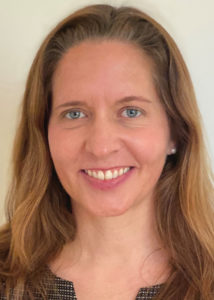A More Equitable Future in Environment, Economy, and Energy

Presented January 21, 2021
I wrote my book, Diversifying Power: Why We Need Antiracist, Feminist Leadership on Climate and Energy, because I realized that a lot of the same people and ideas about climate have been the focus of our policy and public discussions. Discussion tends to center on the science, so we’re missing some important components of how to create an equitable future.
We need a shift in leadership and in our approach to thinking about climate change. We’ve had what I call climate isolationism—people think about climate change as a separate, isolated issue. It’s often talked about in very technocratic, narrow ways, and assumes humans can dominate and control what’s happening with the climate. We’re missing opportunities to improve the human condition when we only talk about decarbonization, greenhouse gas emission reductions, and other scientific issues that don’t connect with most people. An alternative approach is framing the issue as an energy democracy, an acknowledgement that we need to make a shift away from fossil fuels toward a renewable-based future.
You’re probably familiar with the squad of four Congresswomen—Alexandria Ocasio-Cortez, Ilhan Omar, Ayanna Pressley, Rashida Tlaib—who changed the conversation about climate because they connected it with the economic crisis, jobs, racial injustices, and the housing crisis. Their leadership is based on collaboration, inclusivity, and participation. But we should also elevate other leaders who are challenging polluter elite power, such as Jackie Patterson, the Director of Environmental and Climate Justice at the NAACP. She and her team have done amazing work characterizing how the fossil fuel industry has manipulated Black communities, in particular using financial incentives to get approval for fossil fuel infrastructure that have negative environmental health impacts for those communities.
Varshini Prakash of the Sunrise Movement has been inspirational in terms of mobilizing a powerful youth movement. Some leaders—including Erica Mackie of Grid Alternatives, Esteban Kelly of the US Federation of Worker Cooperatives, and Rouwenna Altemose of All In Energy—are particularly focused on workforce development in climate and energy and the transition away from fossil fuels toward renewable energy.
Still another group of leaders connect climate energy to health, well-being, and nutritious food for all. Robert Bullard was among the first researchers to identify the proximity of Black communities to industrial and fossil fuel infrastructure and its disparate health impacts on them. Gina McCarthy was the head of Natural Resources Defense Council and is now the Climate Czar for the Biden Administration. As a result of her work and the advocacy of others, a lot of areas have now declared the climate crisis a health emergency. Jillian Hishaw is a lawyer and advocate for Black farmers and has also done innovative work connecting food and farming with climate.
We also must look at the connections between transportation and climate. Representative Pressley has been a leader in transportation equity issues, elevating and changing the discourse in understanding that transportation policy isn’t all about electric cars because that technology is only really available to privileged people. Michelle Wu is running for mayor in Boston, and she rolled out a Boston Green New Deal. Part of the plan includes making all public transit in Boston free, which sounds like a radical idea since it’s not the way we usually finance public transit. On the other hand, free roads and bridges are considered completely acceptable. Making public transportation free changes the dynamic and opens up the possibility for economic and physical mobility.
Finally, I want to connect climate energy with housing. Representative Ilhan Omar, for example, has brought attention to the housing crisis and the need for big public investment in housing. An activist group of indigenous women in Canada connected housing and climate in another way when they established the Tiny House Warriors, an organization which leverages their cultural sensitivity toward the land as their home by using small houses on wheels to block the trans-Canada pipeline. It’s an act of resistance against the fossil fuel infrastructure that connects directly with housing issues.
We all need to unlearn racism and sexism and prioritize diversity, equity, and inclusion everywhere, in every process, every interaction, and all our priorities at every scale. We can all get involved in leveraging data and science to motivate and support the transformative changes that we need.
Published in the Spring 2021 Humanist
